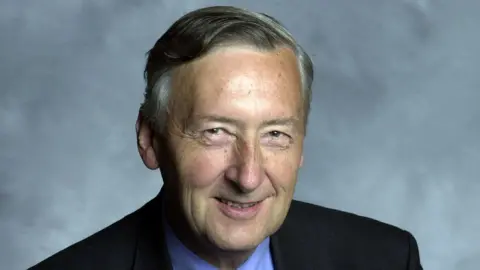Brecon & Radnorshire by-election: 1985 and now
The voters of Brecon and Radnorshire will select an MP in a by-election on 1 August. Welsh Affairs Editor Vaughan Roderick looks back at another by-election in the constituency - one which was memorable for the amount of media coverage it got.
By-elections were big deals back in the 1980s and none came bigger than the 1985 Brecon and Radnor contest, so much so that the BBC devoted half of the Nine O'Clock News to discussing the result.
The contest was seen as an early test for the new Labour leader, Neil Kinnock and the SDP/Liberal Alliance which was still recovering from a poor result in the 1983 general election.
Ironically, the chances of the Conservatives, who'd held the seat until the death of local MP Tom Hooson, were quickly written off given the unpopularity of Margaret Thatcher's administration.
The Liberals, who hadn't even contested the seat for much of the 20th Century, chose a softly spoken agricultural college lecturer, Richard Livsey as their candidate. Mr Livsey, a man once described as "wearing the right shoes to appeal to farmers" had contested the seat at the previous election, coming third.
His main opponent, Richard Willey, a Radnorshire councillor and son of a veteran Labour MP, spent much of the campaign out of the media limelight, closely shadowed by Peter Mandelson on his first outing as Labour's election supremo.

Labour might well have won it too, had it not been for a speech two nights before the poll in which the miners' leader, Arthur Scargill, demanded the right to choose the next chairman of the National Coal Board.
That reminder of the only recently ended miners' strike, along with tactical voting by Conservatives, were enough to put Mr Livsey over the top with a slim majority of just over 500 votes.
This year's Brecon and Radnorshire by-election has received far less media attention than its predecessor but it could prove to be far more important politically.
Losing Brecon and Radnor did little to dent Margaret Thatcher's parliamentary majority and she swept to victory in the subsequent general election.
The 2019 parliament though is one where every vote counts, and where the vote of whoever wins on 1 August could prove crucial.
